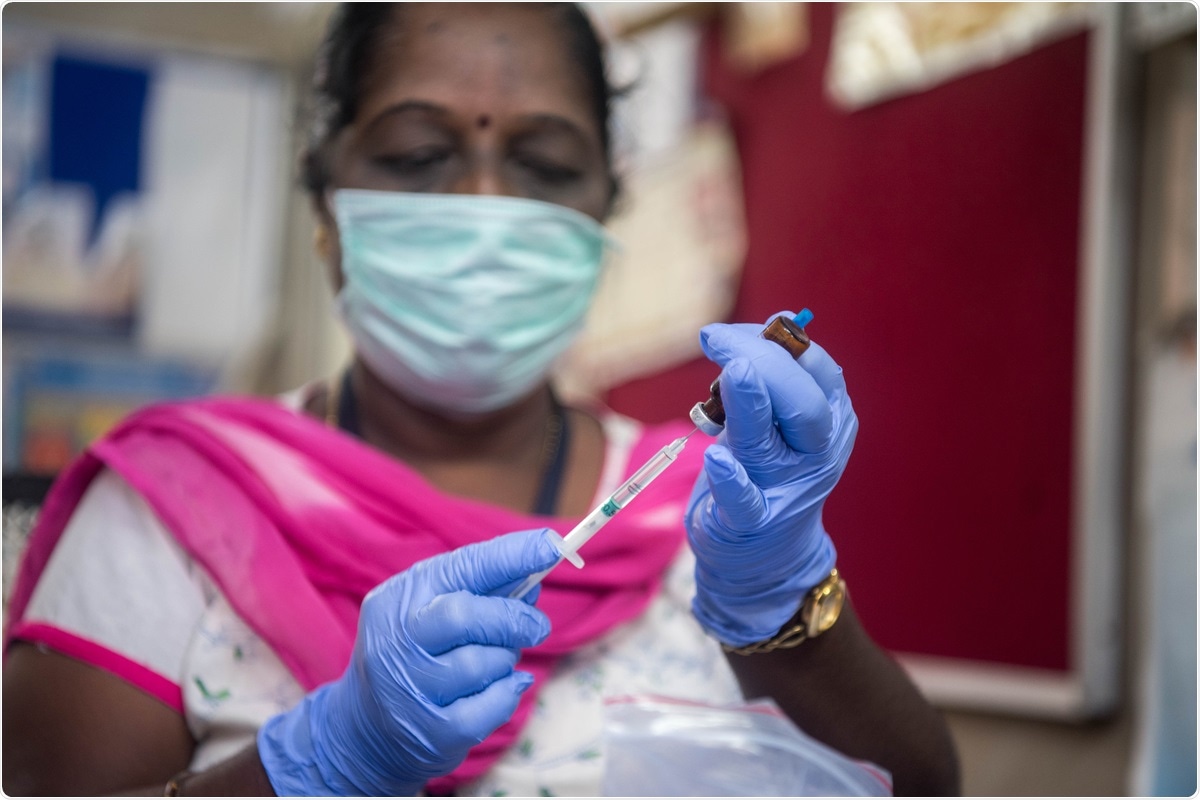In less than three months from its detection, the World Health Organization (WHO) declared the outbreak of the coronavirus disease 2019 (COVID-19) a pandemic. COVID-19’s causative agent, severe acute respiratory syndrome coronavirus 2 (SARS-CoV-2), is highly infective. To date, over 103 million cases have been reported, with over 2.23 million deaths.
At various points in the pandemic’s trajectory, the rapid spread of COVID-19 across many parts of the world have forced numerous nations into a string of lockdowns. In India, lockdown measures have resulted in major disruptions to essential health services, including routine immunization drives for children. Such interruptions during previous epidemics have led to outbreaks of vaccine-preventable diseases, amplifying morbidity and mortality.
A team of researchers studied the disruptions in the vaccinations across India during the current pandemic. The team from the International Vaccine Access Center, Johns Hopkins Bloomberg School of Public Health, USA; Amputee Coalition, USA; St Johns Research Institute, India; Bal Umang Drishya Sanstha, India; and the Indian Academy of Pediatrics, collated observations of Indian pediatricians on this issue.
The findings from the team’s study have been released on the medRxiv* preprint server.
The vaccine program in India
According to WHO, approximately 80 million children under the age of one are potentially at risk for developing a vaccine-preventable illness. This is because they are living in countries where routine immunization services have been disrupted by the pandemic.
The Indian government’s national immunization program covers an annual reach of over 26 million children and 29 million pregnant women, making it one of the largest in the world. In 2014, India launched Mission Indradhanush to achieve full immunization for 90% of children. It included community mobilization, door-to-door campaigns, and monitoring events.
Interruptions in these programs cascade to devastating outcomes in the health of the children, the unborn child and the pregnant mother. The National Health Mission reported that in March 2020, at least 100,000 and 200,000 children missed their BCG and pentavalent (diphtheria, tetanus, pertussis, hepatitis B and Hemophilus influenzae type b) vaccines, respectively.
The survey method
In the non-human subject’s research, the researchers in this study surveyed pediatric healthcare providers in India at two-time points to understand how COVID-19 control measures impacted routine vaccination. The first survey at the peak of the lockdown was in April-June 2020, and the second survey was four months after the nationwide lockdown was lifted in September 2020.
The survey was launched virtually using the software platform Qualtrics. The study recorded 424 responses (from survey 1) and 141 responses (from survey 2).
The survey addressed the following: perceptions of the impact of COVID-19 on caregiver vaccine-seeking behavior; assessment of routine vaccination services and vaccine campaigns; plans for resuming vaccination services; strategies employed to motivate vaccine uptake; and perceived barriers caregivers and providers face in accessing and providing vaccinations.
Concurrent crises in health
Though the lockdown slowed the spread of SARS-CoV-2 and averted COVID-19-related deaths, it also resulted in crises affecting the healthcare provision and health-seeking activities in other important areas.
The pediatricians observed an over 50% decrease in the number of children and families seeking vaccinations. They also observed a reduction in the typical patient volume seeking healthcare facilities compared to pre-lockdown periods.
Reduced health services may lead to non-COVID-19 illnesses and deaths. The lockdown related restrictions would also result in imminent outbreaks of vaccine-preventable diseases.
Barriers to healthcare
The researchers explored the barriers to healthcare provision. Notably, the supply-side barriers were: low availability of healthcare workers; financial constraints; and, limited supplies, including PPE.
They identified barriers related to vaccine uptake: low awareness of the availability of services; transportation limitations; fear of contracting COVID-19 from a clinical setting; and also financial constraints due to the lockdown-related economic crisis.
Lack of awareness on the state or district activities to prioritize vaccination catch-up visits was also a key barrier to achieve the immunization goal.
What needs to be done?
The researchers identified innovative ways to regain losses in vaccination coverage. Some of the suggested ways are setting up localized communication and catch-up campaigns; door-to-door outreach campaigns; use of text messaging immunization campaigns; and implementing appointment-only, affordable immunization visits. Prioritizing robust communication efforts are important.
Immunization and child health monitoring are prioritized essential services in society. However, Indian pediatricians confirm pandemic-related substantial vaccine service interruptions. They are concerned about the long-term impact of lockdowns – predicting increased morbidity and death as well as an increase in vaccine-preventable diseases.
To undo the risk of a reversal of gains, concerted efforts are the way forward to ensure that routine immunization and catch-up programs are implemented everywhere.
India is commencing its COVID-19 vaccine roll-out – one of the largest and most ambitious immunization campaigns in the world. Proactive measures to restore immunization for other pathogens will need to supplement the ongoing drive to prevent vaccine-preventable diseases.
*Important Notice
medRxiv publishes preliminary scientific reports that are not peer-reviewed and, therefore, should not be regarded as conclusive, guide clinical practice/health-related behavior, or treated as established information.
- Anita Shet, Baldeep Dhaliwal, Preetika Banerjee, Kelly Carr, Andrea DeLuca, Carl Britto, Rajeev Seth, Bakul Parekh, GV Basavaraj, Digant Shastri, Piyush Gupta (2021) COVID-19-related disruptions to routine vaccination services in India: perspectives from pediatricians. medRxiv preprint server. 2021.01.25.21250040; doi: https://doi.org/10.1101/2021.01.25.21250040, https://www.medrxiv.org/content/10.1101/2021.01.25.21250040v1.
